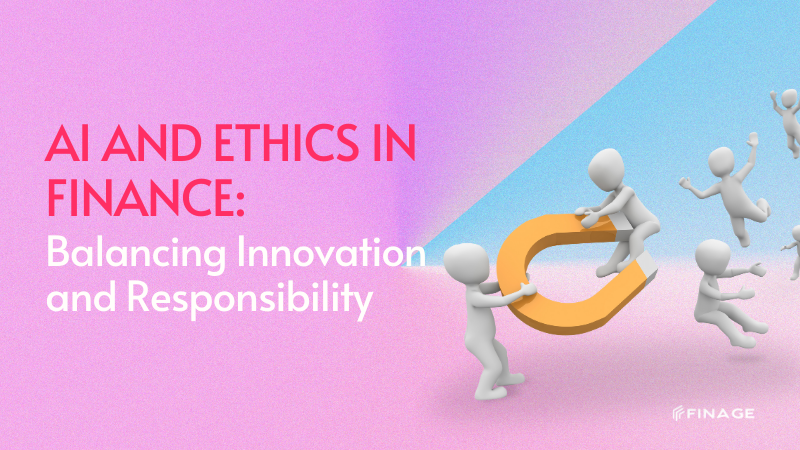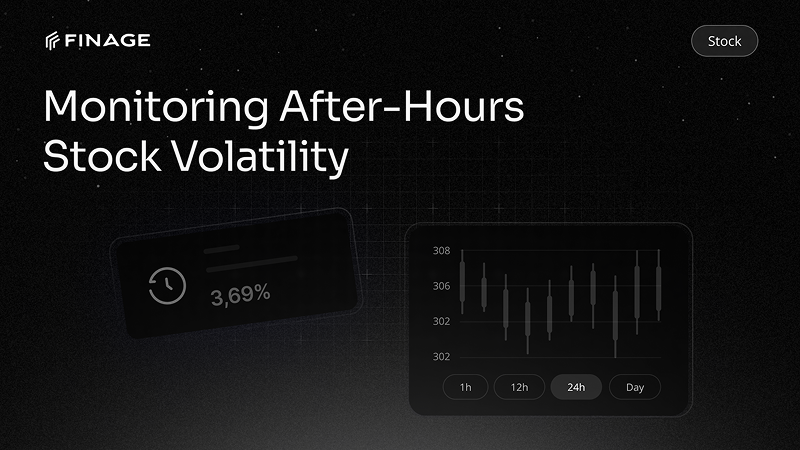AI and Ethics in Finance: Balancing Innovation and Responsibility
5 min read • February 16, 2024

Introduction
Introduction
The infusion of Artificial Intelligence (AI) into the realm of finance has heralded a new era of unparalleled progress and operational efficiencies. Yet, this integration has concurrently raised profound ethical dilemmas and concerns. Issues such as algorithmic biases and data privacy breaches loom large, posing challenges that the financial sector grapples with in navigating the fine line between leveraging technological innovation and upholding ethical responsibility. This blog post endeavors to delve into the juncture where AI intersects with ethics in finance, shedding light on the critical significance of fostering responsible AI practices within the industry.
One of the pressing concerns in deploying AI within finance revolves around algorithmic biases. Machine learning algorithms, while powerful in processing vast amounts of data and making complex predictions, can inadvertently perpetuate biases inherent in the datasets they are trained on. Such biases might reinforce discriminatory lending practices, exclusionary financial services, or skewed investment decisions, further exacerbating societal inequalities. The ethical imperative lies in mitigating these biases by fostering diversity in datasets, ensuring transparency in algorithmic decision-making, and implementing rigorous testing and monitoring mechanisms to detect and rectify biases that might surface.
Additionally, the ethical implications of data privacy and security cast a substantial shadow over AI adoption in finance. The extensive collection and utilization of personal and financial data to train AI models raise concerns regarding individual privacy rights and the potential for data misuse or breaches. Striking a delicate balance between harnessing data for innovation and safeguarding customer privacy is paramount. Financial institutions must prioritize robust data protection measures, stringent compliance with privacy regulations, and transparent communication with users regarding data collection, usage, and storage practices to uphold ethical standards while harnessing the potential of AI.
Table of Contents
- AI in Finance: An Overview
- Applications of AI in Finance
- The Rise of AI-Driven Financial Services
- Ethical Challenges in AI-Based Finance
- Algorithmic Bias and Fairness
- Data Privacy and Security
- Regulatory Landscape for AI in Finance
- Global Regulatory Frameworks
- Compliance and Ethical Standards
- The Role of Transparency and Accountability
- Ensuring Transparent AI Models
- Accountability in AI Decision-Making
- Building Ethical AI Systems
- Ethical AI Design and Development
- Incorporating Human Oversight
- Impact on Customers and Society
- Customer Trust and AI Adoption
- Societal Implications of AI in Finance
- Future Directions and Challenges
- Balancing Innovation with Ethical Practice
- Anticipating Future Ethical Concerns
- Conclusion
- References
AI in Finance: An Overview
Applications of AI in Finance
AI is transforming various aspects of finance, including risk management, fraud detection, customer service, and algorithmic trading, by providing sophisticated data analysis and decision-making capabilities.
The Rise of AI-Driven Financial Services
The surge in AI-driven financial technologies (FinTech) is reshaping the banking and investment landscape, offering personalized and efficient services.
Ethical Challenges in AI-Based Finance
Algorithmic Bias and Fairness
There's a growing concern over algorithmic biases in AI systems, which can lead to unfair treatment of certain customer groups or market segments.
Data Privacy and Security
AI systems in finance handle vast amounts of sensitive personal and financial data, posing significant privacy and security risks.
Regulatory Landscape for AI in Finance
Global Regulatory Frameworks
Financial institutions using AI must navigate an evolving global regulatory landscape focused on ensuring fair and ethical use of AI.
Compliance and Ethical Standards
Adherence to compliance and ethical standards is crucial to maintaining the integrity and trustworthiness of financial services.
The Role of Transparency and Accountability
Ensuring Transparent AI Models
There's a need for greater transparency in AI models to ensure they are understandable, auditable, and free from hidden biases.
Accountability in AI Decision-Making
Establishing clear accountability for AI-driven decisions is essential, particularly when these decisions have significant financial implications.
Building Ethical AI Systems
Ethical AI Design and Development
Incorporating ethical considerations in the design and development phase of AI systems is crucial to prevent biases and ensure fairness.
Incorporating Human Oversight
Human oversight in AI systems can help in making nuanced judgments and addressing ethical dilemmas that automated systems might not fully resolve.
Impact on Customers and Society
Customer Trust and AI Adoption
Building and maintaining customer trust is critical for the wider adoption of AI in financial services.
Societal Implications of AI in Finance
The use of AI in finance has broader societal implications, including potential impacts on employment and the digital divide.
Future Directions and Challenges
Balancing Innovation with Ethical Practice
The financial sector must balance the pursuit of innovation with ethical responsibilities to ensure AI benefits are widespread and equitable.
Anticipating Future Ethical Concerns
As AI technology evolves, the financial sector must anticipate and address new ethical challenges that may arise.
Conclusion
The introduction of AI into the financial sector heralds a transformative era ripe with innovation and efficiency. However, this groundbreaking technology necessitates a meticulous ethical framework to govern its deployment, ensuring that its benefits unfold responsibly and equitably. AI's potential to streamline operations, optimize risk management, and personalize customer experiences is substantial, yet its ethical use requires vigilant oversight to address concerns regarding privacy, bias, and fairness. Achieving a harmonious balance between technological advancement and ethical responsibility stands as the linchpin for the future success of AI in finance.
The promising prospects of AI in finance are contingent upon striking a delicate equilibrium between leveraging its capabilities for progress and upholding ethical considerations. Establishing comprehensive ethical guidelines and robust governance mechanisms is paramount to navigating the ethical complexities inherent in AI implementation. Embracing transparency, accountability, and ongoing evaluation of AI systems are pivotal in cultivating trust among stakeholders and fostering an environment where innovation coexists harmoniously with ethical responsibility. By prioritizing the integration of ethical principles into AI development and deployment, the financial industry can harness AI's transformative potential while ensuring that its evolution aligns with the broader societal good.
You can get your Real-Time and Historical Market Data with a free API key.
Build with us today!
Claim Your Free API Key Today
Access stock, forex and crypto market data with a free API key—no credit card required.

Stay Informed, Stay Ahead
Finage Blog: Data-Driven Insights & Ideas
Discover company news, announcements, updates, guides and more


